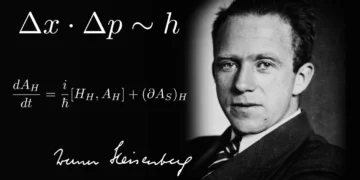Unitarianism is a religious movement that has been gaining popularity in recent years. It is a unique belief system that promotes individual freedom, reason, and tolerance. Many are intrigued by this unconventional approach to spirituality and are curious to learn more about its history and impact on modern society.
What is Unitarianism?
Unitarianism is a faith that focuses on the individual’s relationship with God. It is based on the belief in one God, rather than the traditional Christian doctrine of the Trinity (Father, Son, and Holy Spirit). In Unitarianism, God is seen as a singular and unified being, which differs from the traditional Christian belief in God as three distinct persons.
Origins of Unitarianism
Unitarianism has its roots in the Protestant Reformation of the 16th century when a religious movement called “Unitarianism” emerged in Eastern Europe. Its core principles revolved around the rejection of traditional Christian doctrine, such as the Trinity and original sin. The movement spread throughout Europe and eventually made its way to North America in the 19th century.
Beliefs and Values
Unitarianism places a strong emphasis on the freedom of individual thought and spiritual exploration. It encourages its members to use their reason and conscience to determine their beliefs. This openness and acceptance of varying beliefs have led Unitarians to be known for their diversity and inclusivity.
Unitarian Universalism
In the 1960s, Unitarianism merged with another liberal religious movement, Universalism, to form what is now known as Unitarian Universalism. This merger further expanded the values and principles of Unitarianism, focusing on social justice, environmentalism, and the inherent worth and dignity of every human being.
Impact on Modern Society
Unitarianism’s core values of individual freedom, reason, and tolerance have had a significant impact on modern society. Its emphasis on social justice and equality has led many Unitarians to be at the forefront of social and political movements. Unitarian Universalist congregations often engage in community service projects and advocacy work for marginalized groups.
Unitarianism in the Bible
Unitarianism places a strong emphasis on studying and interpreting the Bible while using reason and historical context. Here are a few fitting Bible passages that reflect some of the core beliefs and values of it:
“For there is no difference between Jew and Gentile—the same Lord is Lord of all and richly blesses all who call on him.” – Romans 10:12
“Speak up for those who cannot speak for themselves, for the rights of all who are destitute.” – Proverbs 31:8
“Investigate everything, hold fast to what is good.” – 1 Thessalonians 5:21
“For God gave us a spirit not of fear but of power and love and self-control.” – 2 Timothy 1:7
An Evolving Faith
In conclusion, Unitarianism is a unique and evolving faith that values individual freedom, reason, and tolerance. Its emphasis on social justice and equality has had a significant impact on modern society. As Unitarian Universalist minister John A. Buehrens once said, “Our unity lies not in one set of beliefs, but in one set of values and commitments.”
















































































